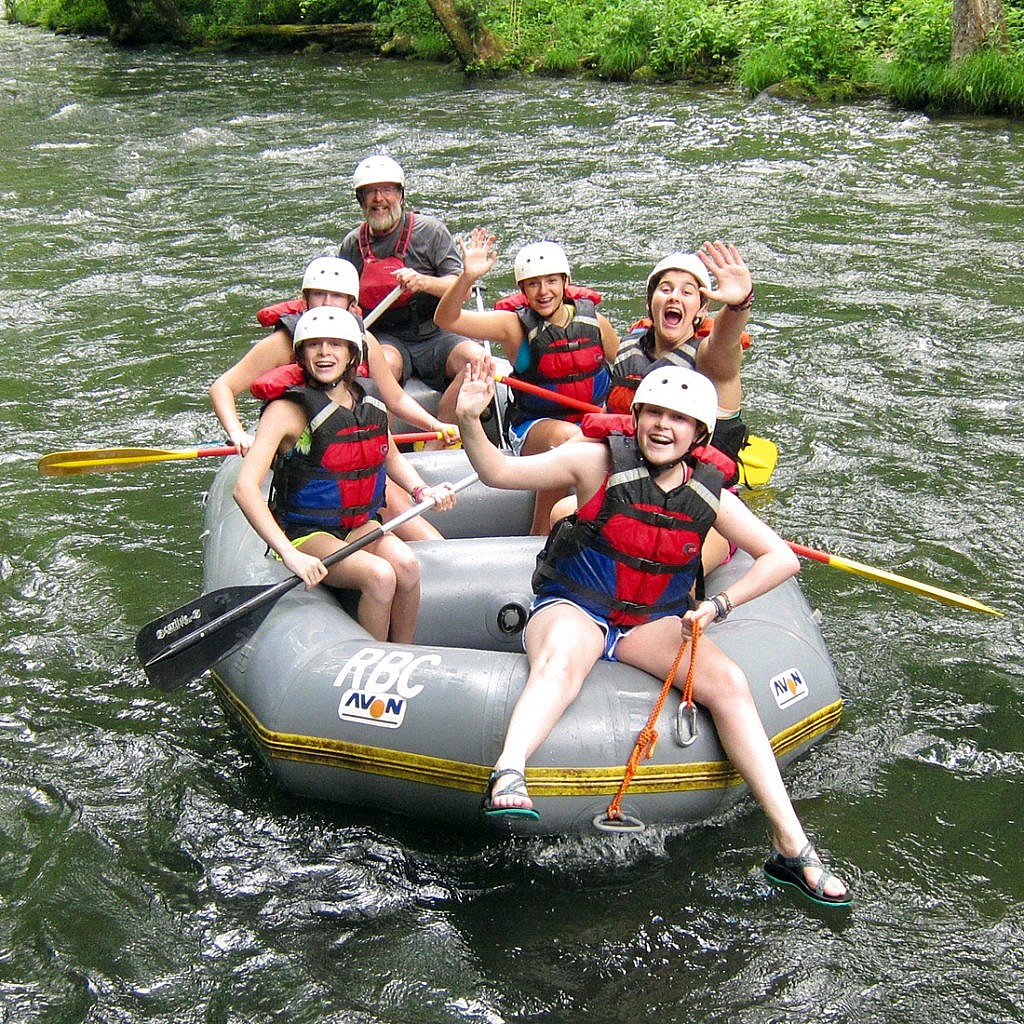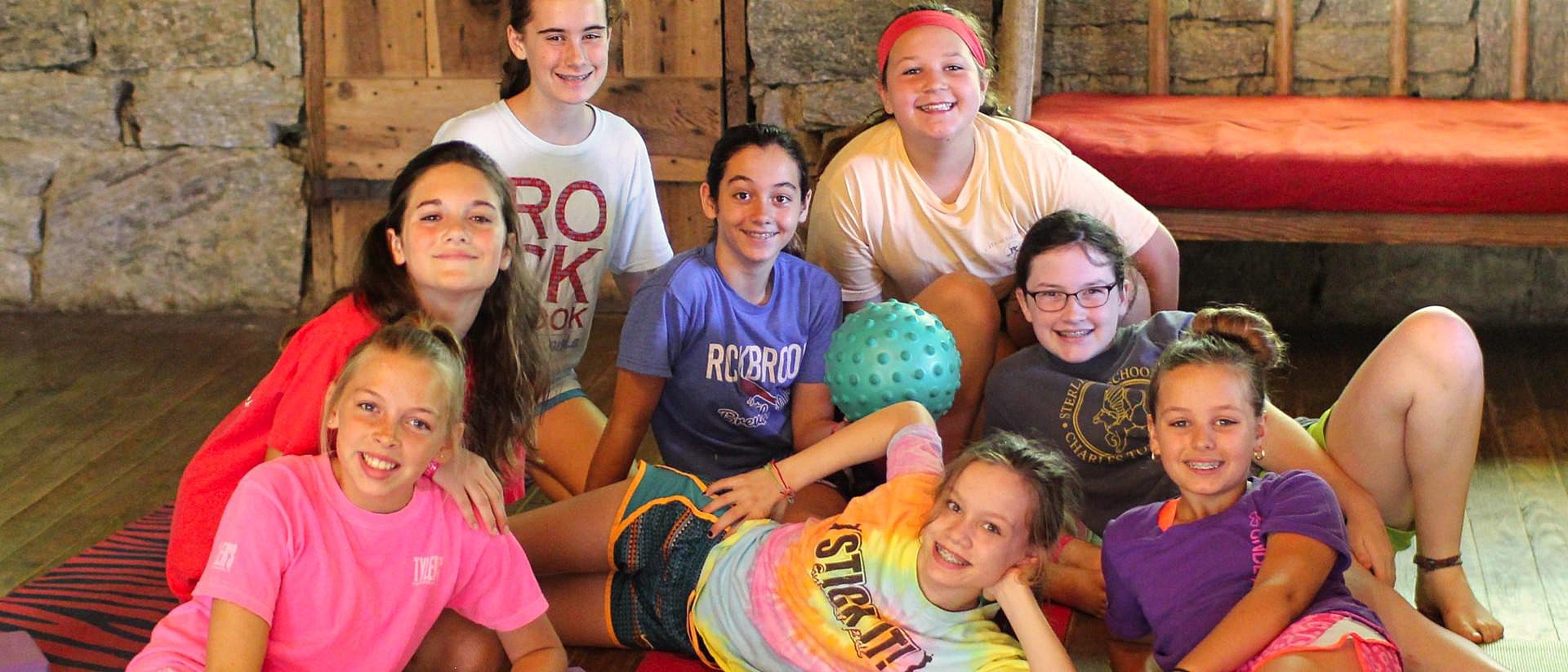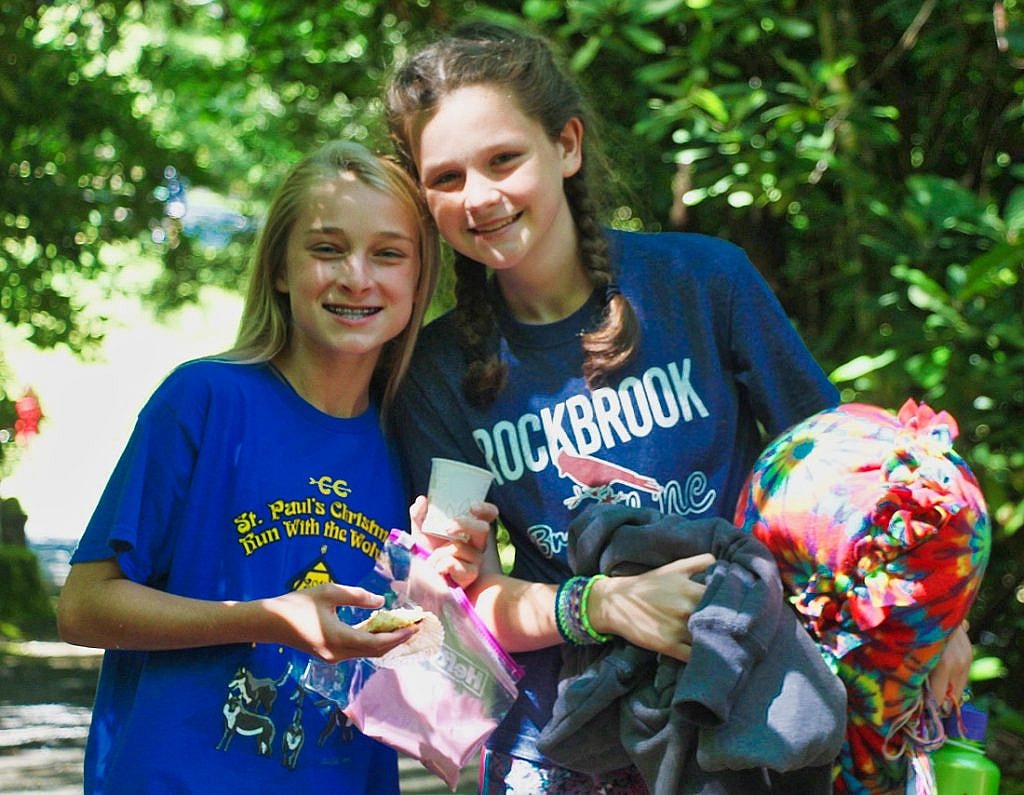By Jeff Carter
Glance through any photo of life at camp and it’s pretty easy to see that the girls at Rockbrook are staying incredibly busy— hiking, zipping, shooting, riding, creating, swimming, simply playing —and having lots of fun. I suspect, however, that you know this activity, this active experience of having fun, also serves as the context for something more profound and enduring. You know that camp is also educational in the best sense of the word. It’s how you answer your friend’s question, “Why do you send your daughter to camp?” You’ve got more to say than, “Because she loves it,” even though that’s true too. Time spent at camp is fun, but also formative. It’s different from life at home, but it’s that contrast that makes it an experience ripe for real learning.
Exactly how it’s educational becomes an interesting question. Back in the late 1800s and early 1900s, many camps focused on religious training, returning to nature, or physical fitness as the core of what’s gained at camp. You can see these same principles today guiding religiously affiliated camps, camps that organize around Native American themes, and sports camps. Recently, the American Camp Association has begun advocating a more general rationale for camp; it’s an environment uniquely well-suited to developing for children so called “21st century skills.” The idea is that beyond traditional academic knowledge (math, history, science, for example), students need certain other skills “critical to success” in the modern work world. Young people need better skills in oral and written communication, collaboration skills, critical thinking and creativity. If they are to succeed, they need better work habits and character traits like leadership. Here’s a great article to learn more about these 21st century skills. In this way, the camp experience encourages curiosity, communication and teamwork skills, and so forth.
This argument makes sense. Camp is more than just fun, more than say an amusement park ride, because it helps kids gain these important skills they’ll need later in life when they get a job. And I can see how this benefit of camp, namely that it helps your child get ahead in our meritocracy, is valuable, but it also seems insufficient. It relies on a rather narrow definition of success, one defined by the working world and organizational productivity. I agree that the summer camp experience helps children develop important inter-disciplinary skills that will help them be more successful in their future job search, entrepreneurial endeavors, or career ambitions, but I do not want to reduce camp to some kind of job training. Once again, it’s more than that!


At Rockbrook camp is fun, yes. It helps develop 21st century skills, yes. But, perhaps most importantly, it encourages girls to develop more fundamental aspects of their character, namely those that define their relationships with other people. Camp life, being rooted in community, conveys core values like kindness, compassion, care and generosity. More than just “who we are,” camp celebrates who we are to each other, in relationship with all of those around us. In other words, camp life, fueled by enthusiasm and encouragement, helps develop your heart, your respect, awareness and feelings for others.
Two 13-year-old campers explained to Sarah the other day that these few weeks they have at Rockbrook each summer are for them their most cherished all year. They “live for” their time at camp. They’ll tell you camp is fun, and they’ll agree they’ve probably improved certain skills, but I suspect that’s not really why they love camp. For so many girls like these, there’s simply no other place they feel more content, included, and joyful. Why? Because camp is about heart. It is a place that puts positive relationships first, and fulfills one of the most basic needs we all share— to feel a sense of true connection with others. Certainly, there are many reasons why girls love camp, but developing your heart is surely one of the best.




